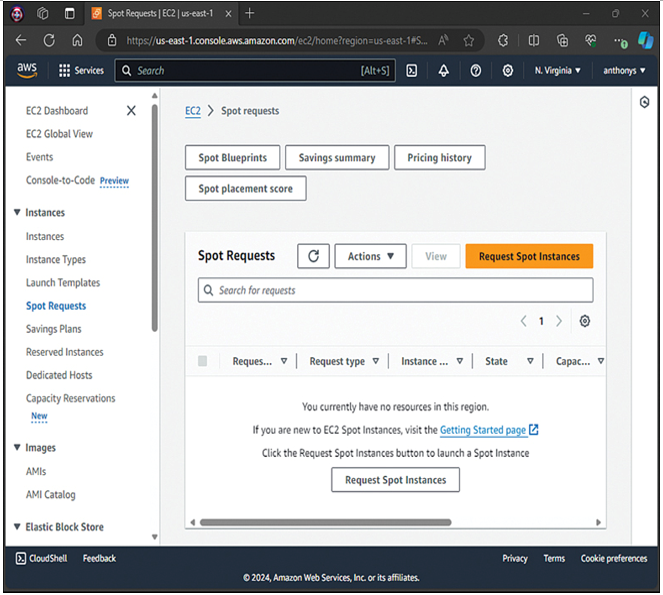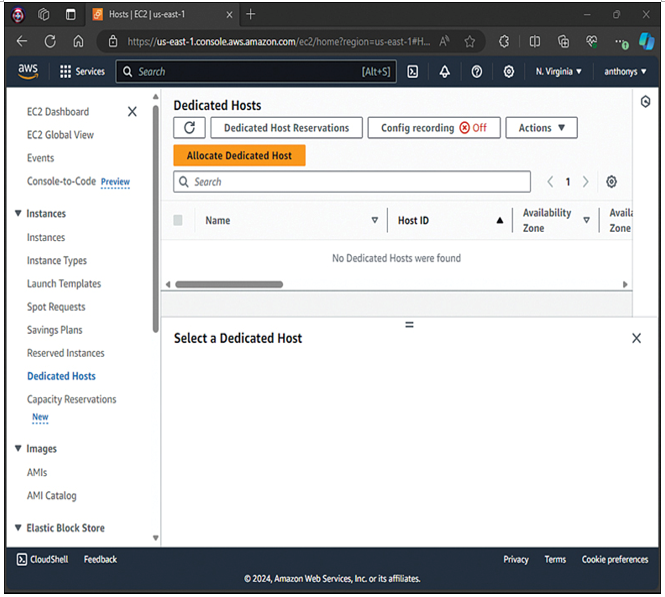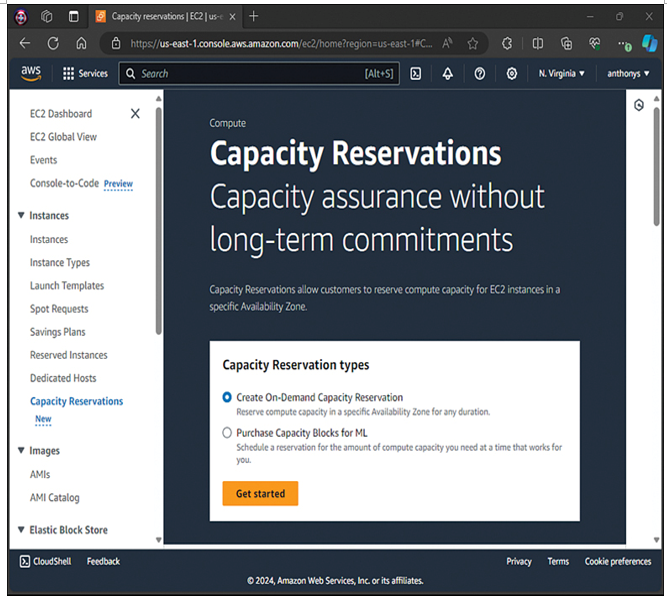Spot Instance Pricing
One of the most interesting pricing plans for AWS compute resources is the Spot Instance pricing plan. With this pricing plan, users can bid on unused compute capacity available with AWS. Since the compute resources are unused, AWS offers them at a remarkable discount of up to 90% when compared to the default On-Demand Instance pricing model. Figure 19-1 shows the Spot Instance pricing option from the EC2 area of the AWS Management Console.

Figure 19-1 The EC2 Spot Request Interface
Spot Instance pricing is recommended for the following AWS users:
Users who are working with fault-tolerant or stateless workloads
Users who are running applications on heterogeneous hardware
Users who are running applications that have flexible start and end times
Dedicated Host Pricing
With the Dedicated Host pricing model, you purchase a dedicated EC2 server from AWS. Notice how unique this is. Normally, you are assigned compute resources from a large pool, and you are typically on hardware that is shared between different AWS customers. The Dedicated Host option is more costly than the previously mentioned cost models.
Even though this option is more expensive compared to the On-Demand Instance pricing model, you might be able to save costs when it comes to licensing. The Dedicated Host pricing model might allow you to use your existing server-bound software licenses, including Windows Server, SQL Server, and SUSE Linux Enterprise Server.
To make the Dedicated Host pricing model more flexible, AWS offers Dedicated Host pricing in On-Demand Instance and Savings Plan variations. Figure 19-2 shows the Dedicated Host request process from the EC2 area of the AWS Management Console.

Figure 19-2 The Dedicated Host Interface of AWS
The Dedicated Host pricing model is recommended for the following users:
Users who need to save money on licensing costs
Users who have workloads that need to run on dedicated physical servers
Users who want to offload host maintenance to the experts at AWS while at the same time controlling the maintenance windows to support their business objectives
Users who need to meet the security policy of their organization or compliance body
Dedicated Instance Pricing
Dedicated Instance pricing is very similar to the Dedicated Host pricing model. You can use both the Dedicated Host and Dedicated Instance pricing options to launch EC2 instances on physical servers that are dedicated to your use. The big difference between the two models is that the Dedicated Host model gives you additional visibility and control over how instances are placed on a physical server. Specifically, you can consistently deploy your instances to the same physical server over time. As a result, the Dedicated Host model enables you to use your existing server-bound software licenses and address corporate compliance and regulatory requirements, as described above.
What does the Dedicated Instance pricing plan offer that the Dedicated Host plan does not? It is really just a single item: the ability to take advantage of per-instance billing.
On-Demand Capacity Reservation Pricing
On-Demand Capacity Reservation pricing permits you to reserve compute capacity for your EC2 instances in a specific Availability Zone for any duration. The idea behind this pricing plan is to avoid being unable to get on-demand capacity in the event that capacity constraints occur in a certain AZ. Figure 19-3 shows the On-Demand Capacity Reservation pricing area of the EC2 console.

Figure 19-3 The On-Demand Capacity Reservation Interface
AWS recommends On-Demand Capacity Reservation pricing for these users:
Users who have business-critical events or workloads that require capacity assurance
Users who have workloads that need to meet regulatory requirements for high availability
Users who are provisioning compute resources to meet disaster recovery plans
Note
Related to this pricing model is the AWS EC2 Capacity Blocks for ML pricing plan. As the name makes clear, this model is designed for the reservation of GPU instances needed for machine learning workloads (which are often significant).
